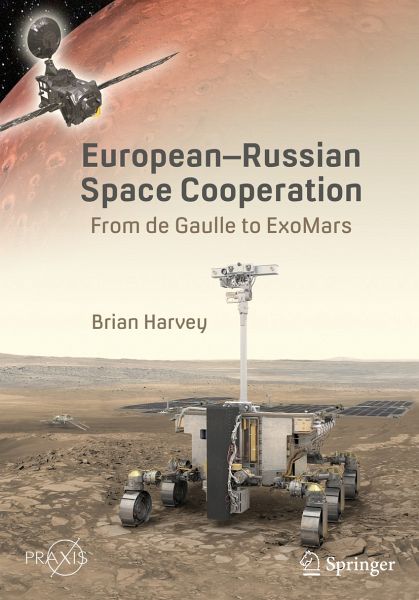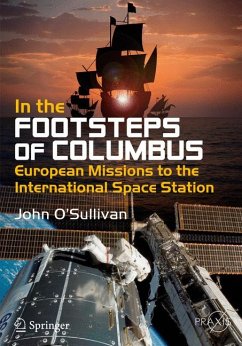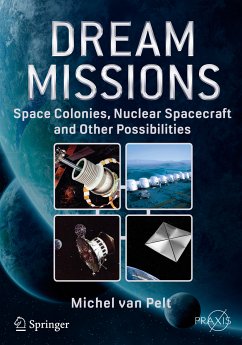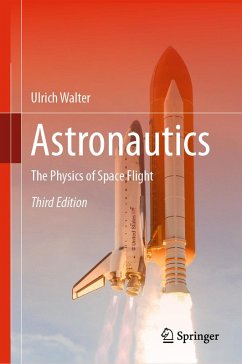
European-Russian Space Cooperation (eBook, PDF)
From de Gaulle to ExoMars
Versandkostenfrei!
Sofort per Download lieferbar
26,95 €
inkl. MwSt.
Weitere Ausgaben:

PAYBACK Punkte
13 °P sammeln!
The story of European-Russian collaboration in space is little known and its importance all too often understated. Because France was the principal interlocutor between these nations, such cooperation did not receive the attention it deserved in English-language literature. This book rectifies that history, showing how Russia and Europe forged a successful partnership that has continued to the present day.Space writer Brian Harvey provides an in-depth picture of how this European-Russian relationship evolved and what factors-scientific, political and industrial-propelled it over the decades. T...
The story of European-Russian collaboration in space is little known and its importance all too often understated. Because France was the principal interlocutor between these nations, such cooperation did not receive the attention it deserved in English-language literature. This book rectifies that history, showing how Russia and Europe forged a successful partnership that has continued to the present day.
Space writer Brian Harvey provides an in-depth picture of how this European-Russian relationship evolved and what factors-scientific, political and industrial-propelled it over the decades. The history begins in the cold war period with the first collaborative ventures between the Soviet Union and European countries, primarily France, followed later by Germany and other European countries. Next, the chapters turn to the missions when European astronauts flew to Russian space stations, the Soyuz rocket made a new home in European territory in the South American jungle and science missions were flown to study deep space. Their climax is the joint mission to explore Mars, called ExoMars, which has already sent a mission to Mars.
Through this close examination of these European-Russian efforts, readers will appreciate an altogether new perspective on the history of space exploration, no longer defined by competition, but rather by collaboration and cooperation.
Space writer Brian Harvey provides an in-depth picture of how this European-Russian relationship evolved and what factors-scientific, political and industrial-propelled it over the decades. The history begins in the cold war period with the first collaborative ventures between the Soviet Union and European countries, primarily France, followed later by Germany and other European countries. Next, the chapters turn to the missions when European astronauts flew to Russian space stations, the Soyuz rocket made a new home in European territory in the South American jungle and science missions were flown to study deep space. Their climax is the joint mission to explore Mars, called ExoMars, which has already sent a mission to Mars.
Through this close examination of these European-Russian efforts, readers will appreciate an altogether new perspective on the history of space exploration, no longer defined by competition, but rather by collaboration and cooperation.
Dieser Download kann aus rechtlichen Gründen nur mit Rechnungsadresse in A, B, BG, CY, CZ, D, DK, EW, E, FIN, F, GR, HR, H, IRL, I, LT, L, LR, M, NL, PL, P, R, S, SLO, SK ausgeliefert werden.












